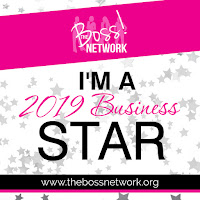Self-Worth And Added-Value: Why You Must Bring Both To The Corporate Table By Jacqueline Miller
Do you generate a profit for your organization? No matter where you appear on the organization chart, if you are to be viewed as an asset, you must be able to demonstrate your value. Your company is investing in you and will inevitably be asking, “What’s in it for us?”
Unfortunately, it can be difficult for a woman to embrace the true value that she brings to her organization when she is struggling to see much value in herself. However, many companies fail to address the latter, because there is often a disconnect between an employee’s personal life and the P&L statement.
Multiple studies continue to indicate that happy employees are also more productive employees. How realistic is it to expect that a woman who is struggling and overwhelmed at home and with self-worth, would also be a highly-productive employee?
The organizations that make the “Best Companies to Work For” lists appear to be proactively addressing these issues. I applaud them and am optimistic that more companies will continue to strive to do an exemplary job of advancing all women and helping them juggle the struggle of self-care, work, and family.
Without question, personal responsibility must exist. Before a woman can honestly assess her value to her organization, she must have a relatively clear understanding of her value to herself. Companies measure the ROI of their employees, and its employees should measure the WIIFM factor (what’s in it for me) - besides a paycheck.
Where to begin? Here are three recommendations:
1. Examine the activities that consume most of your workday, the skill set required of you, the results derived from your efforts, and determine how these things connect back to the company’s bottom line. Are you providing added value? Are you being seen, heard and fairly- compensated?
2. Have clarity as it applies to your personal value system. A woman must define her own set of values, what she views as being right or wrong, practical or not. It is when her behaviors are in conflict with these pre-determined values, or she allows someone else’s behaviors or practices to go against her values, that she potentially may leave others to question her sense of self-worth. When you know your own worth, no one else can make you feel worthless. If you don’t see and own your worth, you will routinely surround yourself with people who don’t see it either. When your self-confidence rises, the quality of your life tends to follow.
3. Invest in yourself. It’s quite easy to say that you want a better life. However, the true test of those words is in one’s actions. Don’t solely rely on company-provided training, which is generally related to your job. Seek out personal development resources, i.e. courses, books, coaches, mentors, etc. Taking these initiatives demonstrates that you are a woman who prefers transformation to stagnation. As a working mom, in doing so you are also setting the example for your children when it comes to taking initiative and the value of personal growth.
The bottom line is this — if you aren’t valuing yourself, what value are you truly capable of bringing to an organization?






Comments
Post a Comment